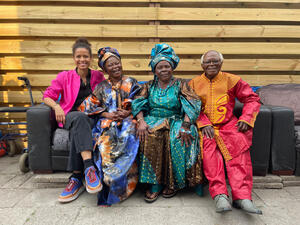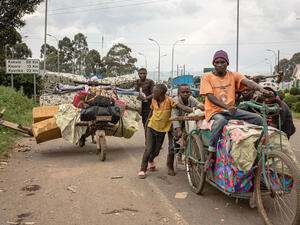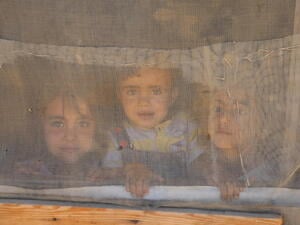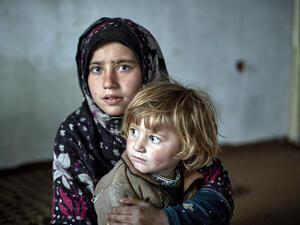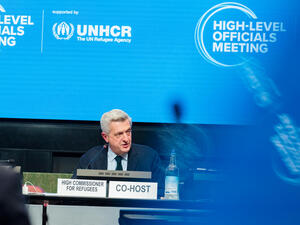Resettlement to Germany of Iraqi refugees in Syria gets under way
Resettlement to Germany of Iraqi refugees in Syria gets under way
HANOVER, Germany, March 19 (UNHCR) - A group of 122 vulnerable Iraqi refugees flew on Thursday from Syria to northern Germany as a government programme to resettle 2,500 Iraqis officially got under way. Last week, a family of three were flown earlier than planned to Stuttgart from Jordan because their infant son needed urgent medical attention.
The group, including women and children, arrived in the northern city of Hanover early afternoon Thursday on a chartered Airbus from the Syrian capital, Damascus.
They were immediately whisked away by bus to the nearby Friedland transit centre, where they will stay for about two weeks before leaving for their final destinations. Local Arabic speakers have been hired to act as interpreters, while trauma counsellors will also be available.
Germany's decision to take in Iraqi refugees currently living in Syria and Jordan is part of a decision by the European Union to accept 10,000 of the most vulnerable refugees for resettlement.
A total 2,000 are set to come to Germany from Syria and 500 from Jordan. Most have relatives in the country or other links with Germany, where they will have the legal right to find employment.
The refugees, who fled their country to escape persecution or conflict in the past three years and cannot return home for various reasons, were met on arrival by Interior Ministry State Secretary Peter Altmaier and local officials.
"Germany has set an important example to ensure that especially vulnerable Iraqi refugees can plan their future life in peace and safety. The resettlement of these refugees is a valuable contribution to international refugee protection," UNHCR Regional Representative Wilbert van Hövell said after their arrival. "The commitment and support received by the German authorities and civil society deserve our explicit appreciation," he added.
Germany, a long-time financial contributor to UNHCR, has received tens of thousands of refugees from around the world in recent decades. The government's decision to establish a programme for Iraqis from the region has been welcomed as a sign of burden-sharing. The names of those accepted for resettlement were forwarded to Germany by UNHCR.
Priority was given to refugees from persecuted minorities, vulnerable cases with specific medical needs, traumatized victims of persecution as well as female-headed households who have family in Germany.
Among those who left was a man who survived a kidnapping, a family targeted for their moderate religious views and a young mother who has been living alone in Syria for the past year after her husband was abducted and never heard of again. She will be reunited with her parents who are now living in Germany; they will help to take care of her young children.
UNHCR estimates that more than 60,000 Iraqi refugees need resettlement from Iraq's neighbouring countries, the majority in Syria and Jordan. Last year 17, 770 Iraqi refugees were resettled to third countries, mostly in the west. It is hoped a much larger number will be accepted and resettled this year.


